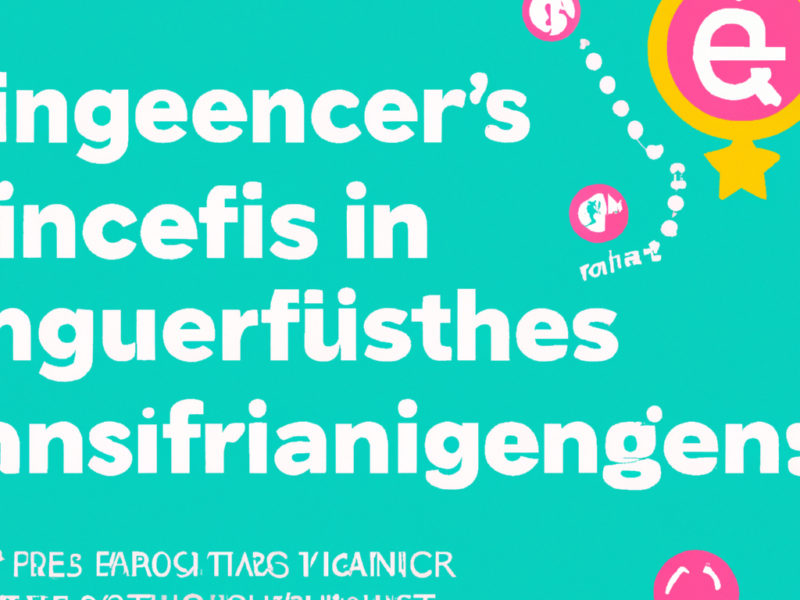Table of Contents
- The Impact of Influencer Marketing on Consumer Behavior
- Understanding Influencer Marketing
- Components of Influencer Marketing
- Impact of Influencer Marketing on Consumer Behavior
- Enhancing Brand Awareness
- Building Brand Trust
- Influencing Purchasing Decisions
- Case Studies Demonstrating the Impact of Influencer Marketing
- Case Study 1: Fashion Industry
- Case Study 2: Beauty Sector
- Statistical Insights into Influencer Marketing
- Challenges and Considerations in Influencer Marketing
- Conclusion: The Future of Influencer Marketing
The Impact of Influencer Marketing on Consumer Behavior

In the digital age, influencer marketing has emerged as a powerful tool for brands aiming to reach new audiences and enhance their market presence. This marketing strategy leverages the popularity and reach of influencers across various social media platforms to influence consumer behavior. This article delves into how influencer marketing impacts consumer behavior, supported by relevant examples, case studies, and statistics.
Understanding Influencer Marketing
Influencer marketing involves brands collaborating with online influencers to market products or services. Influencers, typically having a large and engaged group of followers, can sway the purchasing decisions of their audiences through their recommendations and content. The effectiveness of influencer marketing lies in the trust and rapport influencers have built with their followers.
Components of Influencer Marketing
- Selection of Influencers: The process involves choosing influencers whose brand aligns with the company’s values and target audience.
- Content Creation: Influencers create authentic and engaging content that can naturally promote the brand.
- Engagement Strategies: Effective influencer marketing also involves strategies that engage both the influencer’s audience and the brand’s existing customers.
Impact of Influencer Marketing on Consumer Behavior
The impact of influencer marketing on consumer behavior is profound and multifaceted. Influencers not only affect the awareness and perceptions of brands but also play a crucial role in the decision-making process of their followers.
Enhancing Brand Awareness
Influencers can significantly boost brand visibility and awareness through their wide reach. When influencers share content about a product, they expose the brand to a large audience that might not have been reachable through traditional marketing channels.
Building Brand Trust
Trust plays a pivotal role in influencer marketing. Followers often regard influencers as trusted peers or experts in their respective niches. When these trusted influencers endorse a product, their followers are more likely to develop trust towards the brand, thereby influencing their purchasing decisions.
Influencing Purchasing Decisions
Through personalized and relatable content, influencers can effectively sway their followers’ purchasing decisions. This is particularly evident in how product reviews, tutorials, and endorsements can lead to direct consumer responses such as queries, clicks, and purchases.
Case Studies Demonstrating the Impact of Influencer Marketing
Case Study 1: Fashion Industry
A notable example is a campaign by a well-known fashion brand that collaborated with fashion influencers to launch a new collection. The influencers created various looks using the brand’s clothing and shared these on their social media platforms. This not only increased awareness but also resulted in a significant spike in sales, demonstrating the direct impact of influencer endorsements on consumer behavior.
Case Study 2: Beauty Sector
In the beauty industry, a skincare brand partnered with several beauty influencers to promote their new face mask. The influencers shared their skincare routines incorporating the product, highlighted its benefits, and provided before and after results. This campaign led to an increase in product sales and improved brand perception, showcasing the persuasive power of influencer marketing.
Statistical Insights into Influencer Marketing
Recent studies provide compelling statistics that underscore the effectiveness of influencer marketing:
- According to a survey, 80% of marketers find influencer marketing effective.
- 65% of influencer marketing budgets increased in the past year.
- Consumers are 70% more likely to make a purchase when a product is recommended by an influencer.
Challenges and Considerations in Influencer Marketing
Despite its benefits, influencer marketing comes with its set of challenges:
- Authenticity Issues: Over-commercialization can lead to a loss of authenticity, making followers skeptical of the influencer’s endorsements.
- ROI Measurement: Determining the exact return on investment (ROI) from influencer campaigns can be complex.
- Changing Regulations: With increasing scrutiny by regulatory bodies, brands must ensure that their influencer marketing campaigns comply with advertising laws and guidelines.
Conclusion: The Future of Influencer Marketing
The impact of influencer marketing on consumer behavior is undeniable. As digital platforms evolve, so too will the strategies that brands use to engage with consumers through influencers. By understanding the dynamics of influencer marketing, brands can effectively harness its power to enhance consumer trust, boost brand awareness, and drive sales. Moving forward, the key to successful influencer marketing will lie in maintaining authenticity, measuring the right metrics, and adapting to regulatory changes.
In conclusion, as brands strive to make meaningful connections with consumers, influencer marketing will continue to be a vital tool in the digital marketing arsenal. The future of influencer marketing looks promising, with a focus on transparency, authenticity, and strategic partnerships shaping the way brands interact with consumers.

